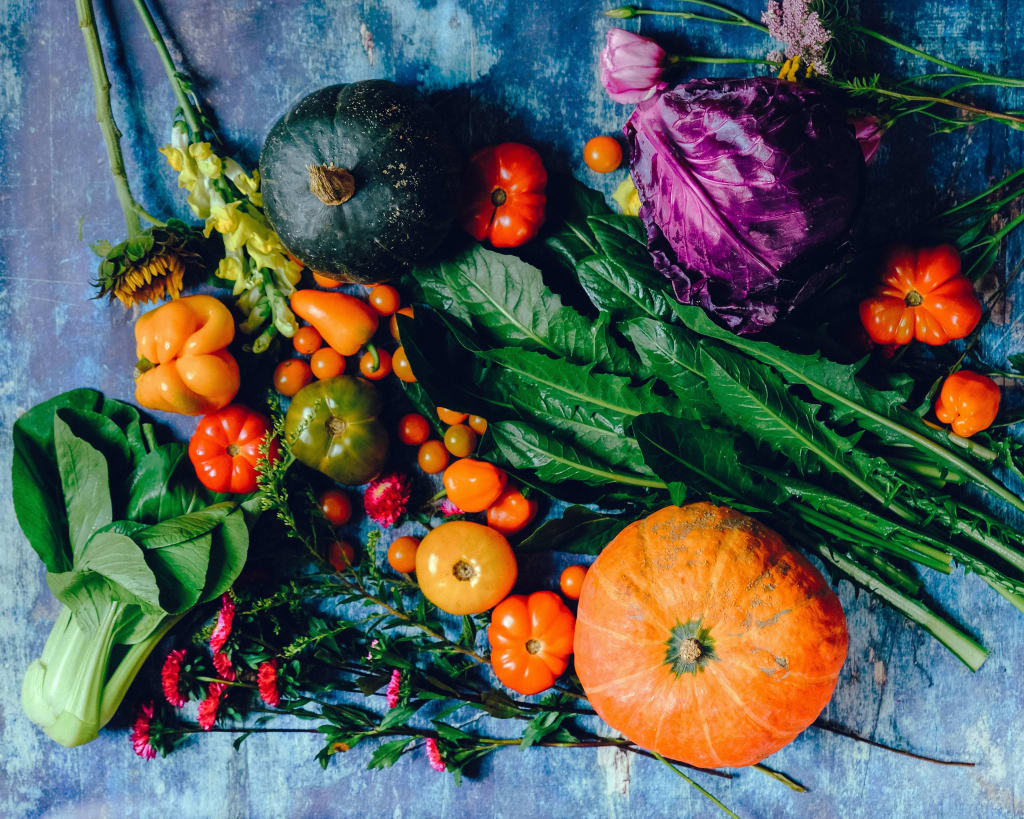"Power-packed Plant Protein: Unveiling the Top 10 Vegetables for Nourishing your Body"
"Harness the Protein Power of Nature's Bounty with These Nutrient-Rich Vegetables"

Protein is an essential macronutrient vital for muscle growth, tissue repair, and overall health. While meat and dairy products are traditional protein sources, an increasing number of individuals are adopting plant-based diets. Luckily, Mother Nature has bestowed upon us an array of protein-rich vegetables. In this article, we explore the top 10 plant-based powerhouses that can provide you with the protein punch your body needs.
Spinach:
Don't let its delicate leaves fool you; spinach is a protein powerhouse. Packed with iron, vitamins, and fiber, this leafy green contains approximately 2.9 grams of protein per cup. Add spinach to salads, smoothies, or stir-fries to enjoy its remarkable health benefits and enhance your protein intake.
Broccoli:
Not only is broccoli a fiber-rich cruciferous vegetable, but it's also a notable protein source. With around 2.5 grams of protein per cup, this versatile veggie is perfect for salads, stir-fries, and steamed dishes. Broccoli also boasts an impressive array of vitamins and minerals, making it a must-have in your diet.
Brussels Sprouts:
Brussels sprouts may be small, but they're packed with protein. One cup contains approximately 3 grams of protein, along with an abundance of vitamins and antioxidants. These mini-cabbages are versatile, allowing you to roast, sauté, or steam them for a delicious and nutritious addition to your meals.
Lentils:
Lentils, a legume powerhouse, are a fantastic source of plant-based protein. With around 18 grams of protein per cooked cup, they offer a complete protein profile and are rich in fiber, iron, and folate. Incorporate lentils into soups, stews, or veggie burgers to boost your protein intake and satisfy your taste buds.
Chickpeas:
Chickpeas, also known as garbanzo beans, are a versatile and protein-rich vegetable. One cup of cooked chickpeas provides approximately 15 grams of protein, along with a good dose of fiber and essential minerals. Roast them for a crispy snack, blend them into hummus, or toss them into salads for a protein-packed meal.
Quinao:
Often referred to as a pseudocereal, quinoa is a complete protein source that contains all nine essential amino acids. With 8 grams of protein per cooked cup, quinoa is a great alternative to rice or pasta. Use it as a base for salads, stir-fries, or as a side dish to boost your protein intake.
Edamame:
Edamame, young soybeans, are not only delicious but also a fantastic source of protein. With around 17 grams of protein per cooked cup, edamame is a popular choice for vegetarians and vegans. Enjoy them as a snack, toss them in salads, or incorporate them into stir-fries for a protein-packed boost.
Peas:
Peas may be small, but they offer a surprising amount of protein. One cup of cooked peas contains approximately 8 grams of protein, along with a generous amount of fiber and vitamins. Whether added to soups, stews, or served as a side dish, peas make a nutritious and protein-rich addition to any meal.
Kale:
Kale, the king of leafy greens, not only provides a wealth of vitamins and minerals but also offers a decent protein content. With around 2.9 grams of protein per cup, kale can be enjoyed raw in salads, sautéed as a side dish, or blended into smoothies for a nutrient-packed boost.
Asparagus:
Asparagus, a springtime delicacy, is not only tasty but also a surprising source of protein. With approximately 2.9 grams of protein per cup, asparagus adds a nutritional punch to any meal. Grill, roast, or steam this versatile vegetable to enjoy its delightful flavor and plant-based protein content.
Conclusion:
Achieving sufficient protein intake is possible even on a plant-based diet, thanks to these incredible protein-packed vegetables. Spinach, broccoli, Brussels sprouts, lentils, chickpeas, quinoa, edamame, peas, kale, and asparagus offer not only protein but also an array of essential nutrients. By incorporating these vegetables into your meals, you can nourish your body while savoring a variety of flavors and textures. Embrace the power of plant protein and thrive on a wholesome, plant-centric diet.






Comments
There are no comments for this story
Be the first to respond and start the conversation.